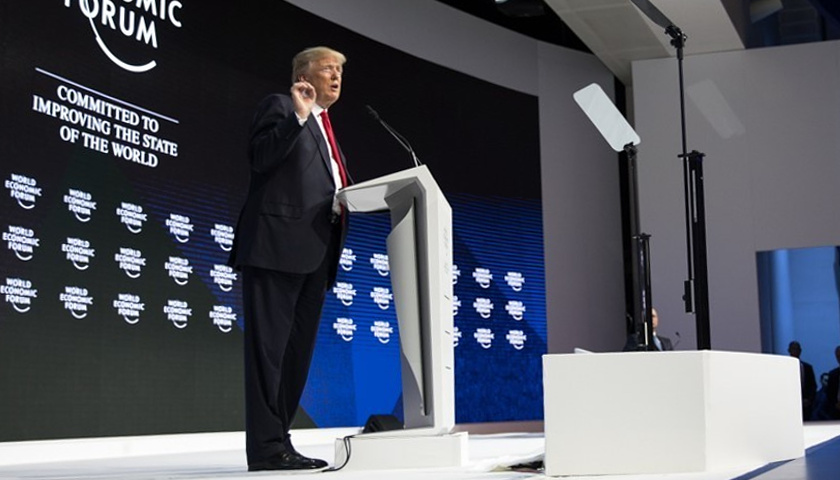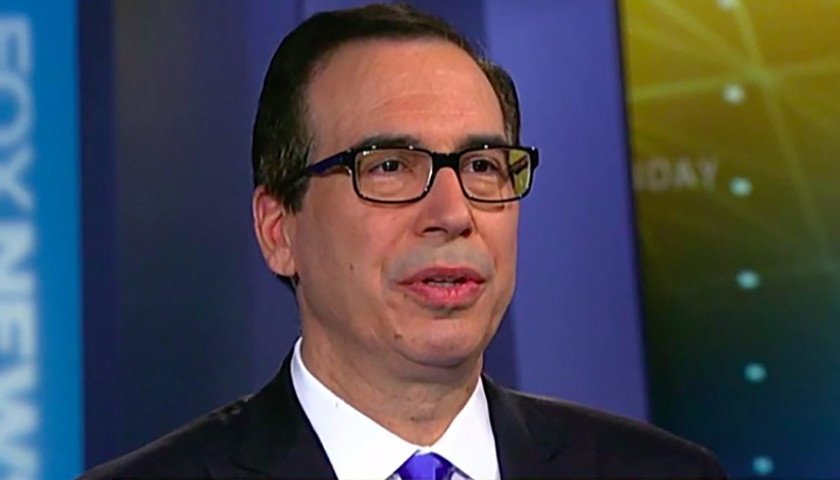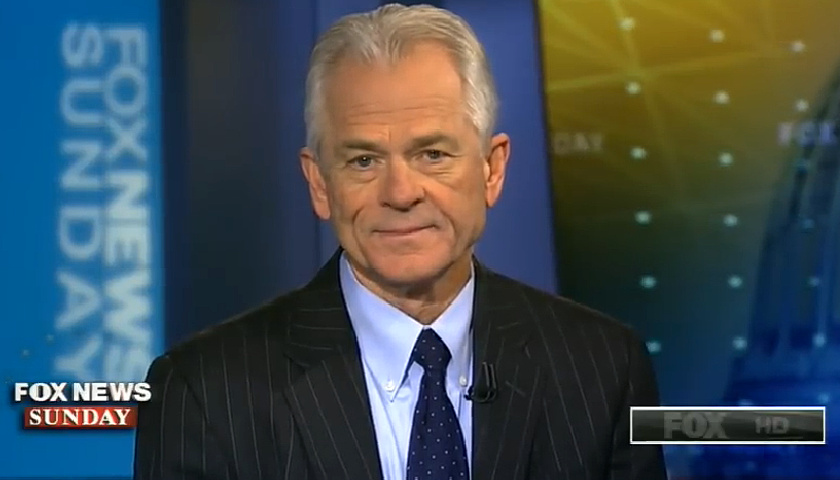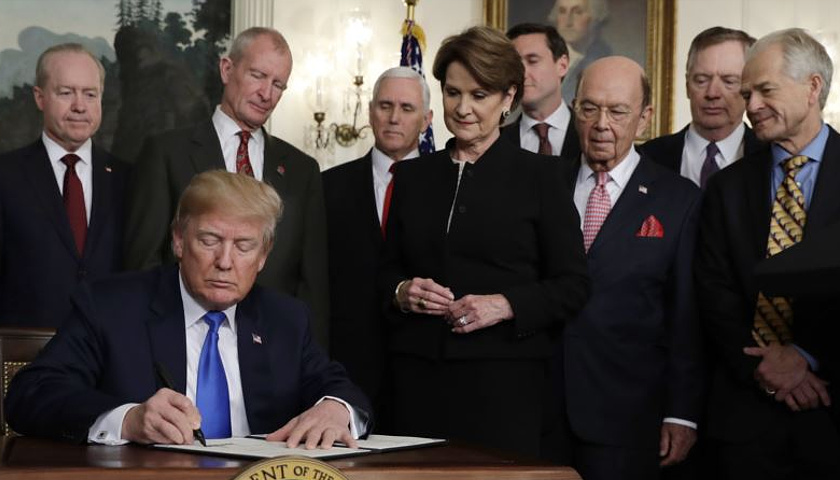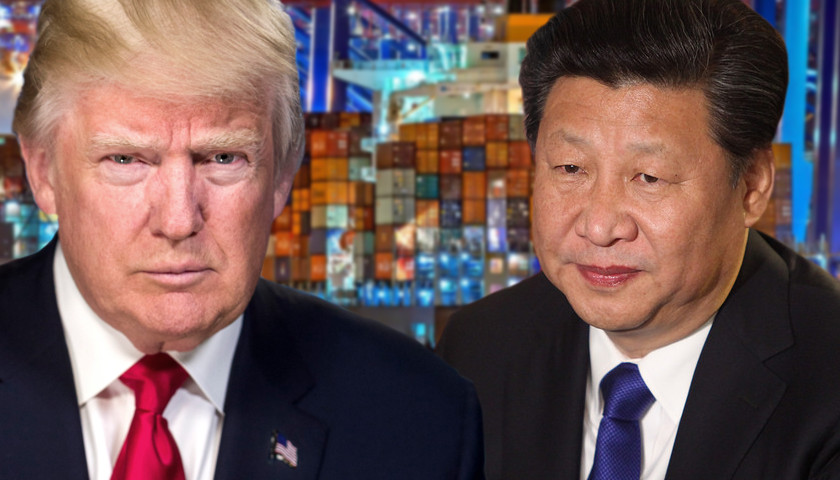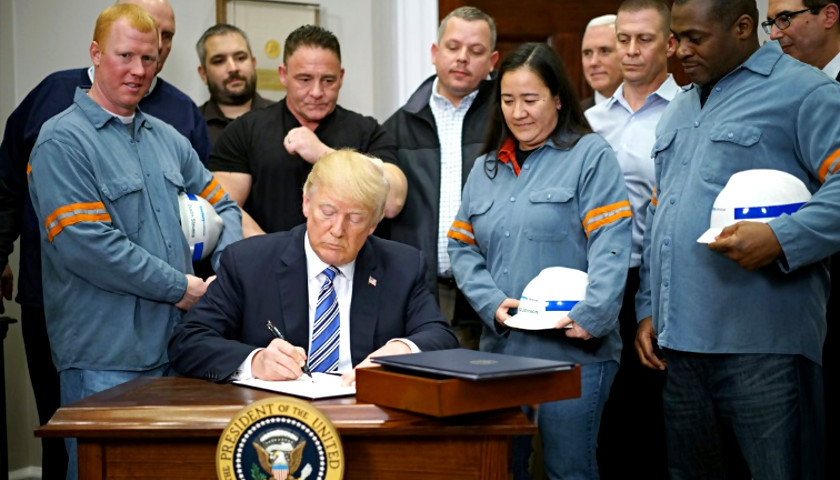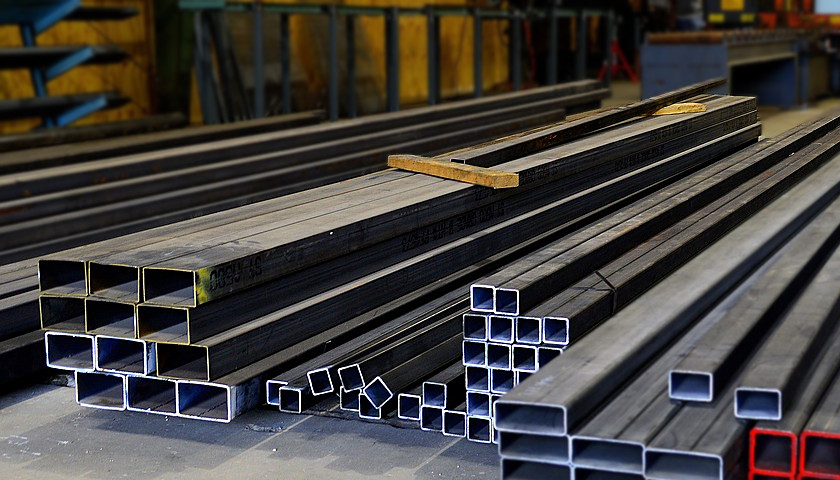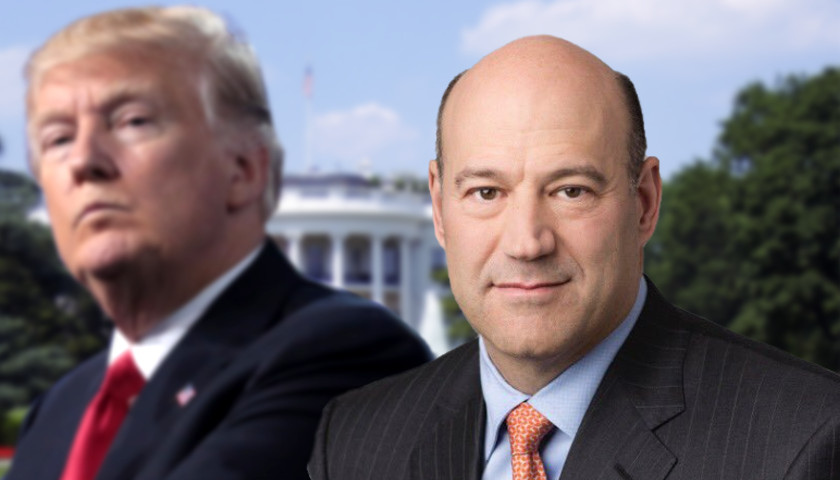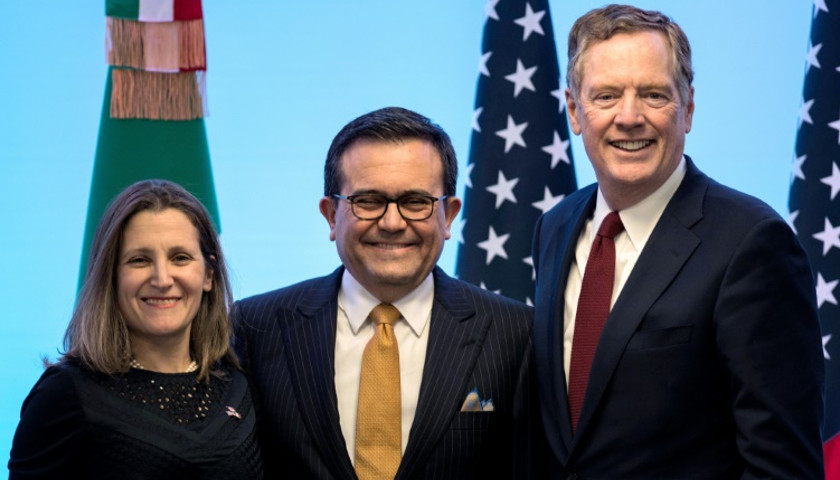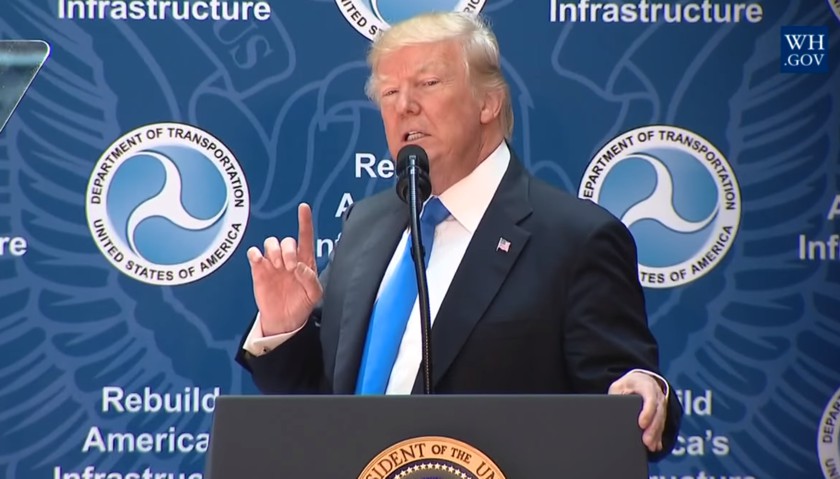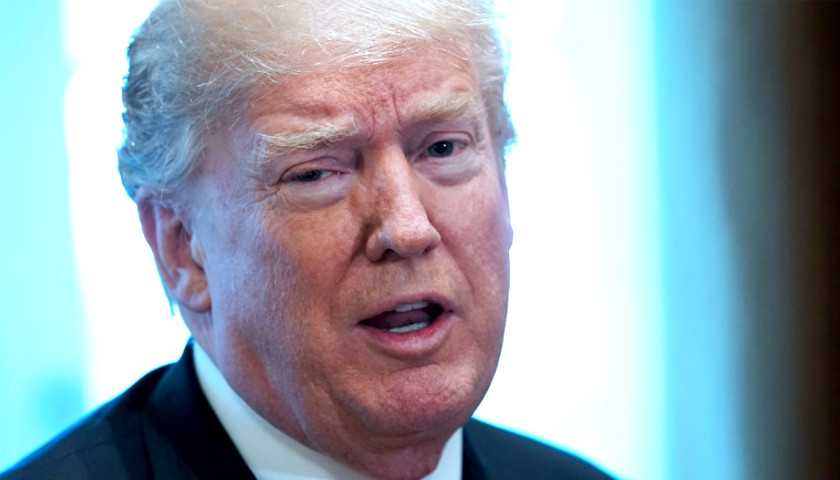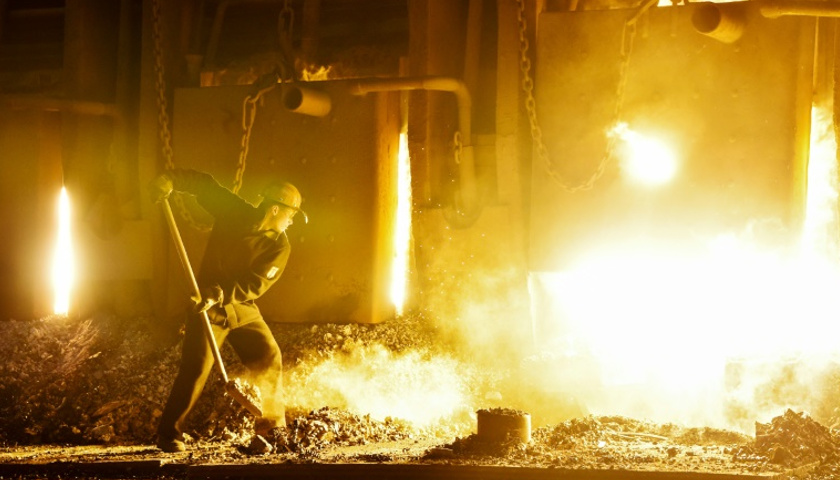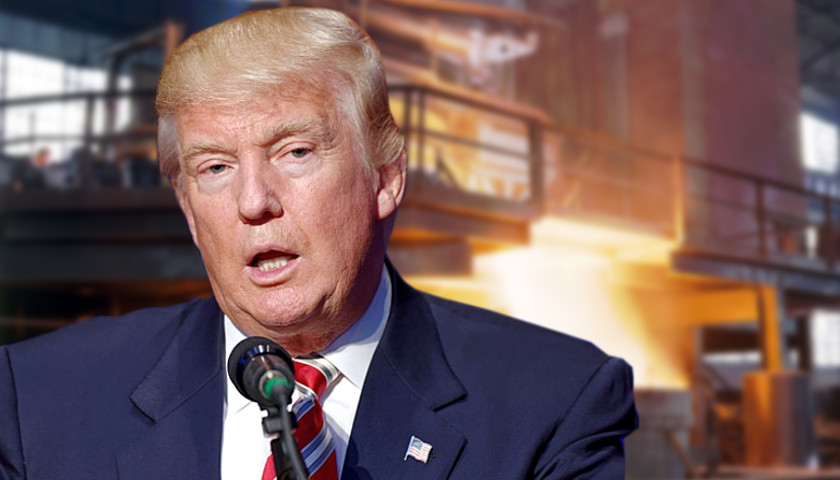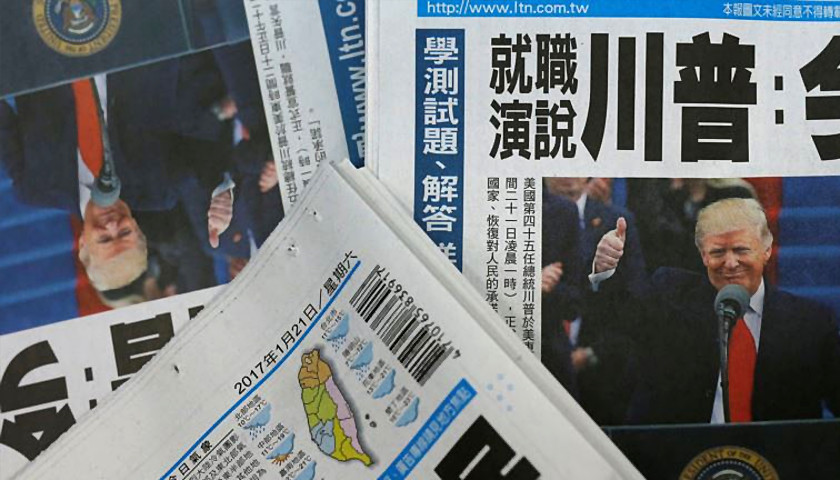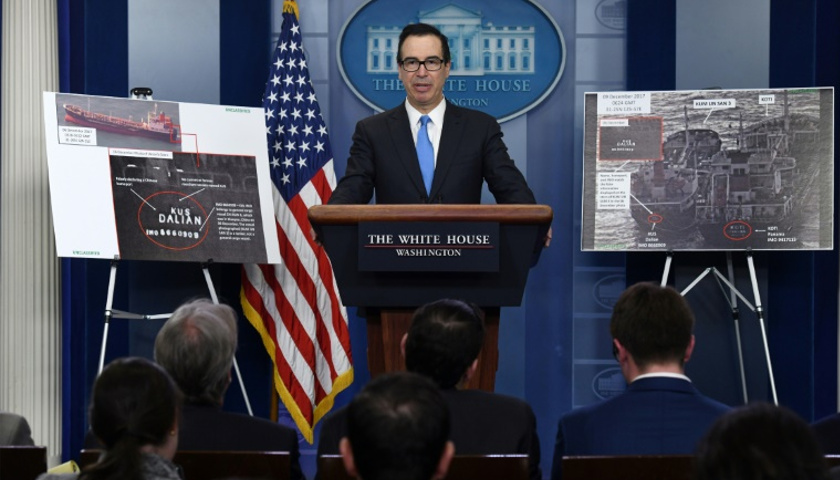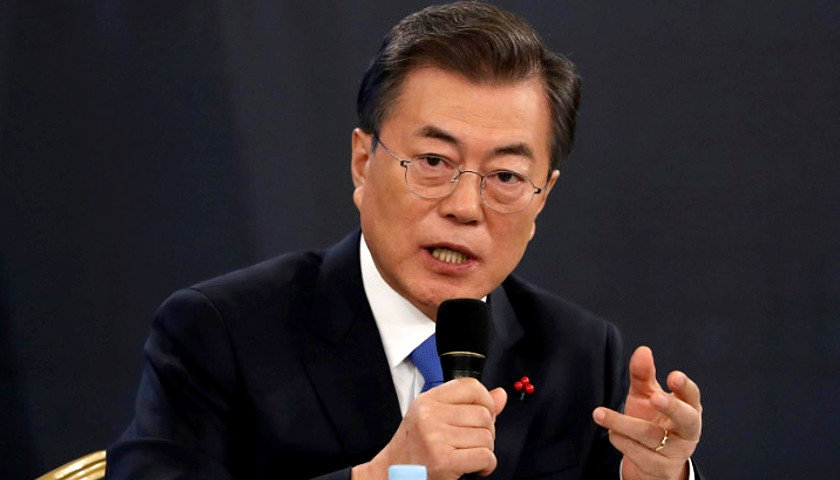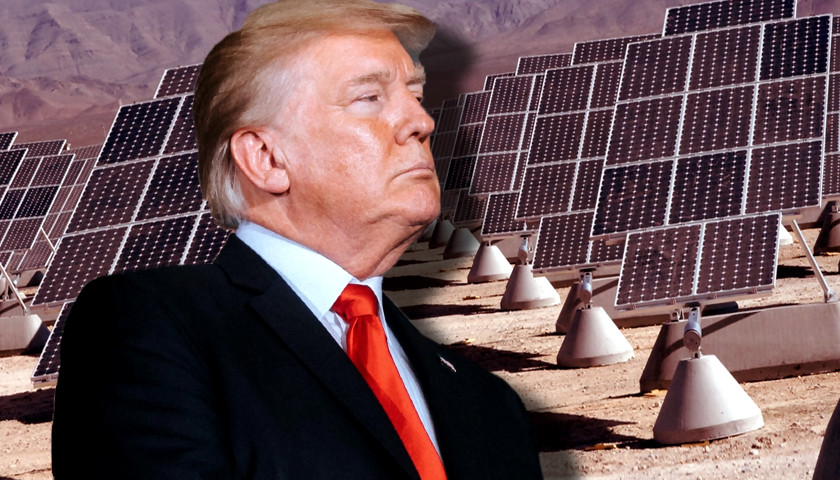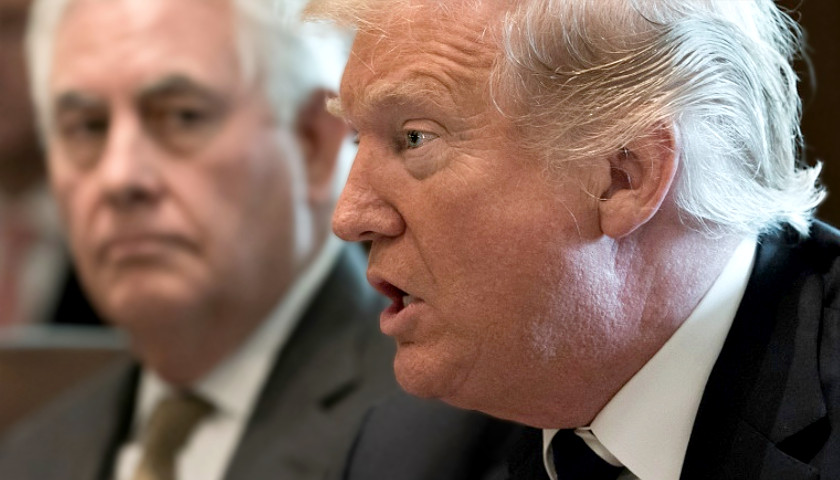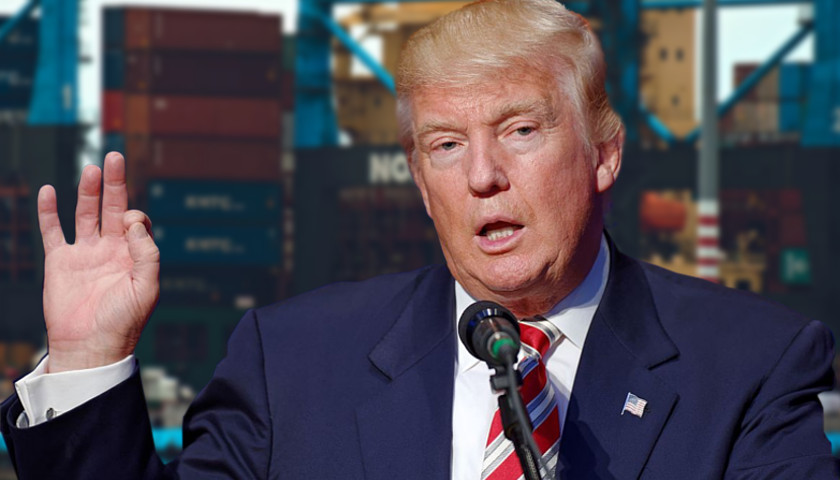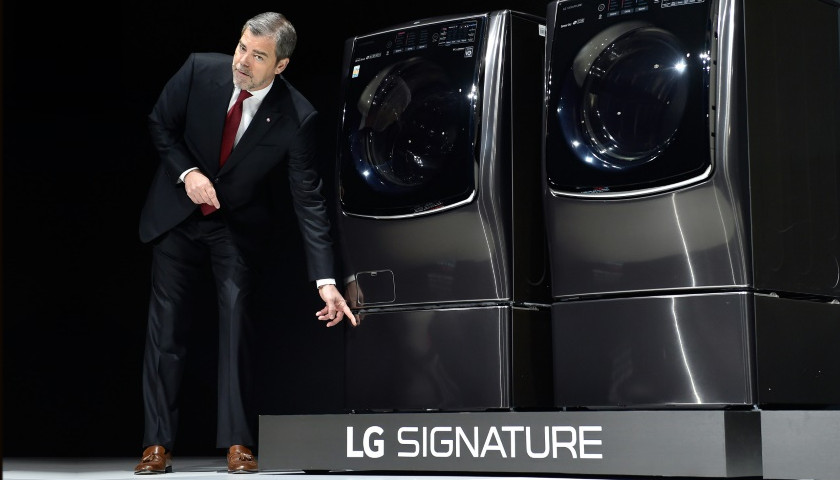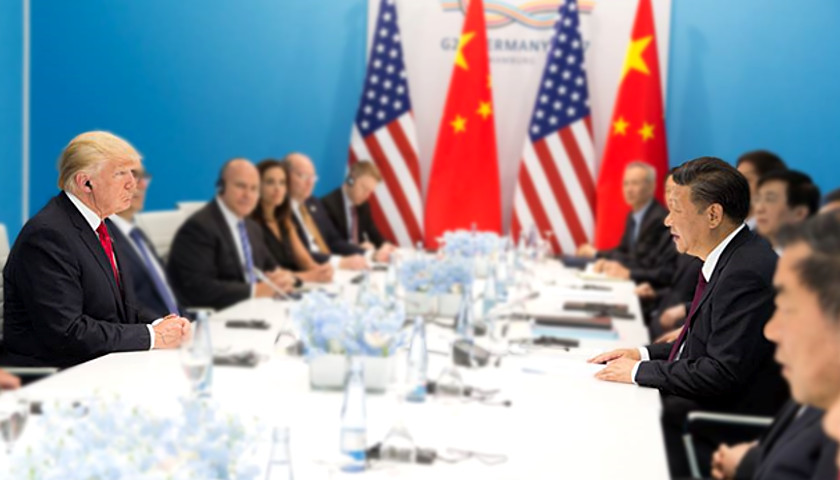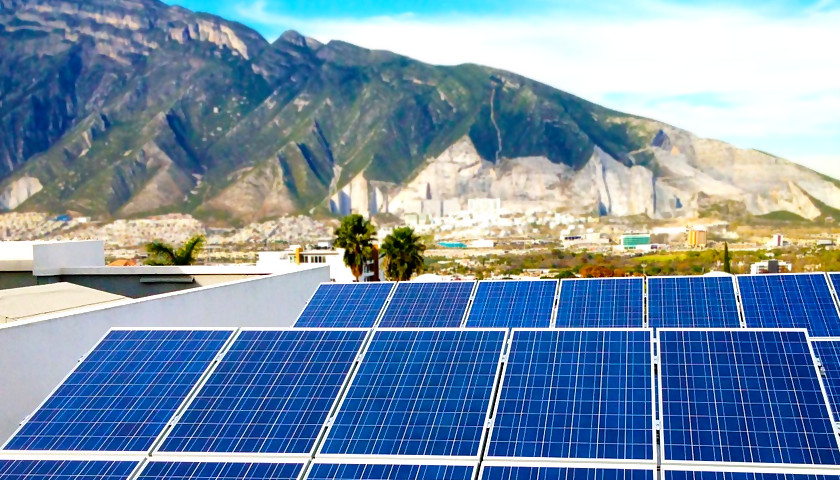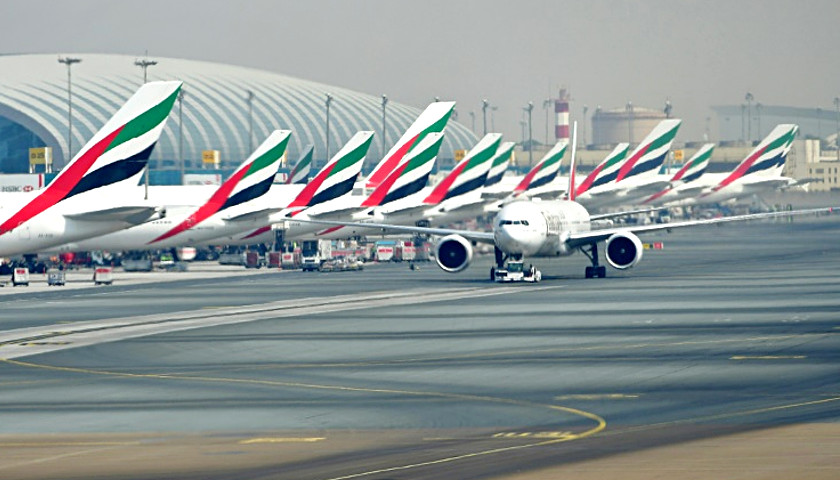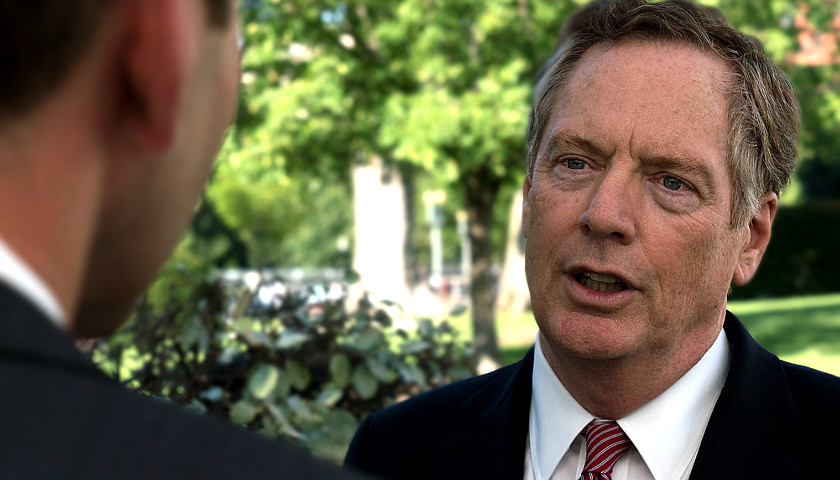By Robert Romano The past month has seen President Donald Trump significantly toughening up the U.S. stance on trade, enacting a 25 percent tariff on steel and 10 percent on aluminum and then $60 billion worth of tariffs against China for intellectual property theft and steel dumping. The month was capped off by an announcement that South Korea had agreed to concessions reducing exports of steel to the U.S. and an increase in U.S.-made automobile imports. Just this past week, Congress tucked a renewal of the $21 billion a year General System of Preferences. The program “provide[s] opportunities for many of the world’s poorest countries to use trade to grow their economies…” according to the U.S. Trade Representative website. It does so by giving participating, poor countries a certain amount of duty-free imports to the U.S. Here’s the problem. In 2017, the top recipient was the seventh largest economy in the world, India, at $5.6 billion. The third top recipient was eighth largest economy, Brazil, at $2.5 billion. If these are two of the larger economies in the world, why do they still qualify for the General System of Preferences as being exclusive for the “world’s poorest countries”? The answer is they really shouldn’t.…
Read the full storyTag: trade
Mnuchin: ‘We Are Going to Proceed with Our Tariffs’ on China
On “Fox News Sunday,” Secretary of the Treasury Steven Mnuchin said that “we are going to proceed with” the $60 billion in tariffs that President Donald Trump threatened against China for its unfair trade practices. Trump imposed a 25 percent tariff on imported steel and a 10 percent tariff on imported aluminum earlier in March to protect the U.S. economy and national security interests, although he announced Thursday he would exempt several countries.
Read the full storyTrump Trade Guru Peter Navarro Pledges No Trade War: ‘We Come in Peace’
President Trump’s top trade adviser on Friday reassured jittery investors and business leaders that the U.S. was not starting a trade war with China, after new tariffs start Wall Street selloff. “We are not trying to pick a fight with anybody. We are just trying to get a better deal for the American people.
Read the full storyTrump Boosts Tariffs on Chinese Imports
U.S. President Donald Trump imposed tougher economic sanctions on China on Thursday, setting the stage for $60 billion in new tariffs on Chinese imports that could quickly lead to a trade war with Beijing. The U.S. leader targeted China’s alleged years-long theft of U.S. intellectual property, imposing new restrictions on Chinese investment in the U.S. that mirror regulations that American companies face when they invest in China.
Read the full story‘Free-Trade’ Theory Failures in the Face of Real World Trade Warfare Against the U.S.
By Printus LeBlanc Last week the Trump administration announced it would impose a 25 percent tariff on imported steel and a 10 percent tariff on imported aluminum. Many in the media and were quick to lose their mind as usual. Before judging President Donald Trump’s actions, those criticizing should look at the real world instead of the utopian society they want to live in. In the real-world trade is used as a weapon and it is time the U.S. wake up to that reality. A 2014 white paper from U.S. Army Special Operations Command on Unconventional Warfare discusses different methods of warfare being used by various adversaries. With regards to China, it states, “China will use a host of methods, many of which lie out of the realm of conventional warfare. These methods include trade warfare, financial warfare, ecological warfare, psychological warfare, smuggling warfare, media warfare, drug warfare, network warfare, technological warfare, fabrication warfare, resources warfare, economic aid warfare, cultural warfare, and international law warfare.” This is more than abstract theory. There is actual recent historical evidence to prove nations use trade and economic warfare to accomplish a goal. The U.S. and Saudi Arabia used the oil trade as a weapon…
Read the full storyTrump to EU: We’ll Drop Our Tariffs If You Drop Yours First
President Donald Trump said Saturday he would spare the European Union his steel and aluminum tariffs if the bloc halts its own trade barriers to US products, in his latest round of economic hardball. The duties of 25 percent on imported steel and 10 percent on aluminum have stung the EU, along with other major partners including Japan, and European Trade Commissioner Cecilia Malmstroem said earlier Washington had failed to clarify how its allies could be spared.
Read the full storyTrump’s Steel Tariffs Protect National Security, End $8 Billion in Foreign Aid Annually to Canada, Mexico, South Korea and Brazil
By Robert Romano President Donald Trump is keeping the promise he made in 2016 and is protecting the American steel industry, instituting a 25 percent tariff across the board on steel imports. No nations are excluded. The move comes as the U.S. imported 34.5 million metric tons from around the world, a 16 percent increase from 2016 when it was 30 million metric tons. In comparison, while America’s steelworks are heating up once again, they comparatively only grew by 3.4 percent in 2017 according to the International Trade Administration to 81.6 million metric tons from 78.5 million metric tons. This flooding of U.S. markets is designed to drive down prices here by dumping subsidized steel products here, making it harder for domestic producers to maintain market share. The imported steel is much cheaper. In the event of war, keeping U.S. productive capacity at high levels is critical, to prevent shortages at a time when production would be needed the most and imports cannot be guaranteed. As the Commerce Department noted in its recommendation for instituting the tariffs: “Domestic steel production is essential for national security applications. Statutory provisions illustrate that Congress believes domestic production capability is essential for defense requirements and critical…
Read the full storyEconomic Advisor Gary Cohn Announces White House Departure
White House Economic Advisor Gary Cohn announced Tuesday he will resign from his West Wing position in the coming weeks.
Read the full storyNAFTA Talks Not Living Up to Expectations: US Negotiator
Negotiators failed to make the progress expected in the latest round of talks on revamping the North American Free Trade Agreement, the top US trade official warned Monday as President Donald Trump renewed his attacks on the deal.
Read the full storyDonald Trump May Reconsider Tariff on Aluminum and Steel in Exchange for New Terms on NAFTA
President Trump said Monday that he’ll reconsider tariffs on aluminum and steel if Canada and Mexico agree to new terms on NAFTA. “We have large trade deficits with Mexico and Canada. NAFTA, which is under renegotiation right now, has been a bad deal for U.S.A. Massive relocation of companies & jobs.
Read the full storyAustralia Warns of Trade War, Pushes for Trump Tariffs Exemption
Australia Sunday warned against tit-for-tat retaliation and the outbreak of a trade war that could slow global economic growth, as it pushed to be excluded from US President Donald Trump’s steel and aluminium tariffs. Canberra has sought to be exempt from the hefty tariffs, citing an understanding reached with the United States at G20 meetings last year. There are also local industry concerns that the tariffs could see cheap steel destined for the US flood the domestic market instead.
Read the full storyPeter Navarro: ‘No Country Exclusions’ for Steel, Aluminum Tariffs
The White House’s director of the office of trade policy on Sunday said there will be no country “exclusions” at this point for new tariffs on steel and aluminum imports.
Read the full storyChina Will ‘Take Necessary Measures’ If US Harms Trade
China will “take necessary measures” if the United States harms the country’s economic interests, a Chinese official said Sunday, as President Donald Trump plans to impose tariffs on steel and aluminium. “China doesn’t want a trade war with the United States,” Zhang Yesui, spokesman for the National People’s Congress, told a news conference on the eve of the rubber-stamp parliament’s annual session.
Read the full storyAs Warned, Donald Trump Will Impose Tariffs on Steel, Aluminum Imports
President Trump said Thursday that he plans to slap tariffs on steel and aluminum, bucking senior trade advisers and some industry leaders who warn Americans will pay the price. The president insisted that tariffs were needed to combat dumping of foreign steel and aluminum into the U.S. market.
Read the full storyUS Senate Approves Bill Boosting Ties Between US, Taiwan
A bill that will promote closer ties between the United States and Taiwan is heading to President Donald Trump for his signature. The U.S. Senate approved the Taiwan Travel Act Wednesday by unanimous consent, following a similar move by the House of Representatives in January.
Read the full storyBeijing Protests US Sanctions on Chinese Firms over North Korea Ties
Beijing has protested against Washington’s decision to impose sanctions against Chinese companies accused of conducting illicit economic deals with North Korea, the foreign ministry said. US President Donald Trump on Friday announced measures targeting more than 50 North Korea-linked shipping companies, vessels and trade businesses, hailing the package as the “heaviest sanctions ever” levied on the nuclear-armed regime.
Read the full storyS. Korea’s Moon Urges ‘Stern’ Response to New US Tariffs
South Korean President Moon Jae-in called Monday for a “stern” response to new US tariffs on the South’s exports as concern grew over looming trade restrictions by Washington. US President Donald Trump last week threatened retaliatory action against China and South Korea and vowed to revise or scrap a 2012 free trade deal with the South which he described as a “disaster”.
Read the full storyTrump’s Tariffs Are Driving a U.S. Solar Panel Resurgence
President Donald Trump’s recent to apply tariffs on imported solar panels was met with strong reaction in Washington, reaction that very much divided along political lines. But the initial evidence shows that the tariff is working.
Read the full storyCommentary: Modernize NAFTA or End It
By Robert Romano More than any other issue, President Donald Trump’s vow to renegotiate the North American Free Trade Agreement (NAFTA) or else leave it may have been the most important reason he won the Electoral College in 2016 against his opponent, Hillary Clinton. Trump won Ohio by about 450,000 votes. In Pennsylvania, Trump only won by 44,000 votes. In Florida, Trump won by only 113,000 votes. In Michigan, Trump only won by 11,000 votes. In North Carolina, Trump won by 173,000. In the rust belt they included states that traditionally voted Democrat. And they’re what put Trump over the top in 2016. These were some of the states hit the hardest by NAFTA. Ohio has lost 290,874 manufacturing jobs since the NAFTA and World Trade Organization (WTO) era began in 1994 and 1995 respectively, according to data compiled by the Bureau of Labor Statistics and Public Citizen. Pennsylvania has lost 312,338 factory jobs since then. Florida has lost 82,006 jobs in manufacturing. Michigan lost 182,288. North Carolina lost 338,990. Fortunately, since taking office in 2017, President Trump has been working to keep his promise. On April 27, Trump took to Twitter to announce, “I received calls from the President of Mexico…
Read the full storyCommentary: President Trump Is Right about ‘Fair and Reciprocal’ Trade
by Robert Romano “I want reciprocal. If they’re going to charge us 100 percent for a motorcycle, it should be 100 percent the other way, too.” That was President Donald Trump in an interview with CNBC’s Joe Kernen on Jan. 26 while he was on the ground in Davos, Switzerland renewing his call for “fair and reciprocal” trade. Here, the President was referring to India’s 100 percent tariff on motorcycles manufactured in the U.S., including Harley-Davidson, and telling the subcontinent that if it’s going to put that kind of tax on U.S. goods, then it should go in the other direction, too. Trump is right. Sometimes the only incentive for another country to lower their tariff wall is for them to feel tariffs, too. That is how tariffs have been lowered the past century following Smoot-Hawley — reciprocally. When each side is mutually agreeing to lower their tariffs in an enforceable, the world gets closer to free trade. In the case of India, a good place to start is the $4.7 billion of trade preferences the U.S. gives under the General System of Preferences. At $19 billion a year, the General System of Preferences, which expired Dec. 31, “provide opportunities for…
Read the full storyUS Subsidiary of South Korea’s LG Will Increase Washing Machine Prices Due to US Tariffs
The US subsidiary of South Korea’s LG Electronics warned retailers on Wednesday that it will raise prices of its washing machines following import duties imposed by the Trump administration this week. It was the first concrete reaction to the trade measures announced this week that have angered US trading partners. “As a result of the trade…
Read the full storyU.S.-China Trade Deficit Heads for an All-Time High for 2017 as Trump Tells Xi Arrangement ‘Not Sustainable’
By Robert Romano Once December’s numbers come in, the U.S.-China trade in goods deficit will likely hit an all-time high in 2017 at more than $370 billion, according to U.S. Census data, as President Donald Trump told Chinese President Xi Jinping in a recent phone call that the arrangement is “not sustainable.” The number will be set off partially by about a $38 billion trade in services surplus. That would put the overall trade deficit with China very close to the 2015 record of $334 billion. China was granted permanent normal trade relations in 2000 and admitted to the World Trade Organization in 2001. Since that time, U.S. global manufacturing market share has dropped from 13.98 percent in 2000 to 7.91 percent in 2016, while China’s has risen from 4.75 percent to 16.92 percent, according to data compiled by the World Bank. As far as tariffs go, China’s most favored nation tariff is 4.3 percent while the U.S. sits at 2.7 percent. On currency, China has kept its fixed exchange rate with the dollar, which today stands at 6.4 Yuan per 1 U.S. dollar, about where it was at the start of 2016. By keeping the yuan artificially low, it is believed China keeps its exports…
Read the full storyTrump Slaps Big Tariffs on Imported Solar Panels, Riling Renewables Industry
The Trump administration announced Monday that it will impose hefty tariffs on the cheap, imported panels that have driven the rapid expansion of solar power in the United States, a move that industry groups warn will slow the spread of renewable energy and cost thousands of jobs. The tariffs come as Trump has vowed to take a tough line against cheap foreign imports that are undercutting American manufacturing industries.
Read the full storyCommentary: Time for China, Japan to Join ‘Developed’ Nations at WTO
By Robert Romano China ($11.2 trillion) and Japan ($4.9 trillion) combined make up 21 percent of the world’s Gross Domestic Product, according to the World Bank, having benefited from preferential treatment in global trade deals, and are still being treated as “developing” nations under world trade rules. At institutions such as the World Trade Organization (WTO), developing economies do not have to play by the same rules on tariffs, subsidies and other trade barriers as developed economies like the U.S. The policy, called “special and differential” treatment, has been a mainstay of world trade rules since at least the Tokyo Round of GATT that began in 1973, when developing economies in the Asia-Pacific region argued for special protections. Back then, the concept was called “non-reciprocity.” It states, “The developed contracting parties do not expect reciprocity for commitments made by them in trade negotiations to reduce or remove tariffs and other barriers to the trade of less-developed contracting parties.” And specifically, that “the less-developed contracting parties should not be expected, in the course of trade negotiations, to make contributions which are inconsistent with their individual development, financial and trade needs, taking into consideration past trade developments.” Now, more than 40 years…
Read the full storyRick Manning Commentary: Reciprocity Is the Key to Lasting, Prosperous Trade
by Rick Manning You know, as a non-economist, when I received the invitation to participate in this forum, I kind of felt like a Christian being invited into the Coliseum to meet the lions for lunch. However, since this debate is largely a political and not an economic question, I am confident that the audience will find that I have some smooth stones at my disposal to take down Goliath. After listening to the affirmative, I want to remind the audience of what this debate is about. The affirmative must prove this resolution: “The U.S. government should unilaterally abolish all tariffs and duties on imports and all subsidies to exports, thereby making all reciprocal trade agreements with other countries unnecessary.” This resolution rises or falls on three words: UNILATERALLY, SHOULD and UNNECESSARY. Because ultimately, the affirmative demands that the U.S. should, in the real world, take unilateral actions, which in practical application will cause reciprocal trade agreements to become unnecessary. So, as we begin we will exam these three areas. Let’s start with the terms unilateral and reciprocal. Unilateral action is the opposite of seeking reciprocal trade agreements as a precondition to lowering tariffs and lifting subsidies. But reciprocity is not merely a negotiating…
Read the full storyEmirates Orders 40 Boeing 787 Dreamliners for $15.1 Billion
Emirates Airlines on Sunday agreed to purchase 40 Boeing 787-10 Dreamliners for $15.1 billion at list price, its chief Sheikh Ahmed bin Saeed Al-Maktoum said. Emirates is already the world’s largest client for Boeing’s 777, with 165 jets and another 164 on firm order. Sheikh Ahmed said the deal raises total outstanding orders from US aerospace…
Read the full storyTrump Trade Representative Lighthizer: Fair Trade Will Bring Jobs, Wage Growth
As President Donald Trump headed to Asia for a 13-day trip, his trade representative said the White House’s job is not to appease Wall Street or U.S. companies with major factories located in Mexico and China, but to increase U.S. manufacturing jobs and wage growth. “Many of these (U.S. manufacturing) workers haven’t had a raise in…
Read the full storyJohn Miller Commentary: An Obscure Trade Dispute Could Upend Tennessee’s Senate Race
by John Miller Tennessee’s Senate race is poised to become a battleground in one of the most divisive issues facing the country: Can the United States make free trade work in the national interest? With Sen. Bob Corker out of the race and national figures like Breitbart chairman Stephen Bannon vowing to field populist candidates, the 2018 campaign could become a nationalized race that features intra-party debates on the trade issue. Fueling the debate may be an obscure trade dispute that is making its way to the president’s desk—one with significant implications for Tennessee. Earlier this month, the U.S. International Trade Commission (ITC) unanimously held that trade practices by Samsung and LG Electronics are harming Whirlpool and other U.S. manufacturers. The decision follows two previous rulings by the ITC that Samsung and LG are dumping washing machines into the U.S. market. With the benefit of subsidies from the Korean government, the conglomerates are overloading the U.S. market with washers and selling them below market value in order to undercut U.S. manufacturers. Dumping is illegal under both U.S. and international trade law. President Trump will decide in the coming months whether or not to level tariffs and other remedies against…
Read the full storyTrump to pull out of Trans-Pacific Partnership
President Trump is expected to sign executive orders Monday that pulls the U.S. out of the Trans-Pacific Partnership and possible unravel other major trade deals, according to multiple reports. Getting out of TPP, which Mr. Trump said was a “bad deal,” was one of his top campaign pledges and part of the America-first agenda he pledged…
Read the full story
